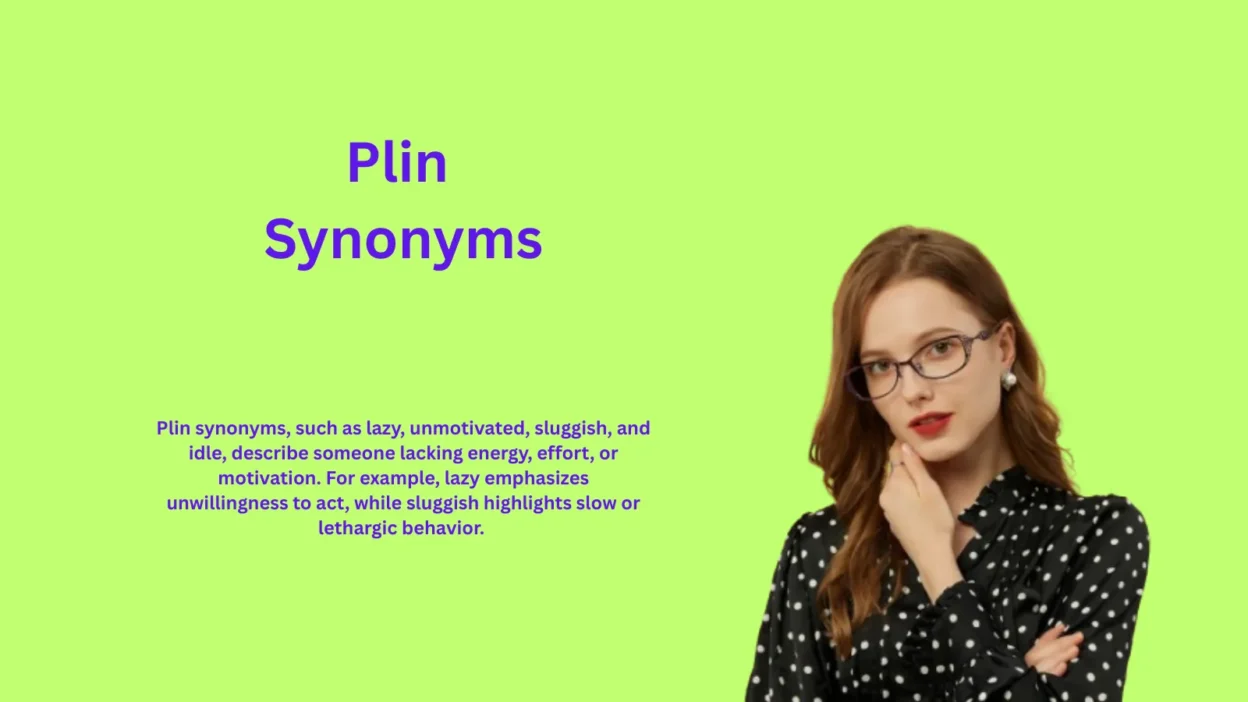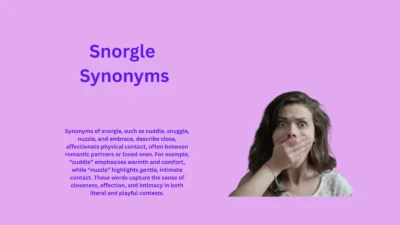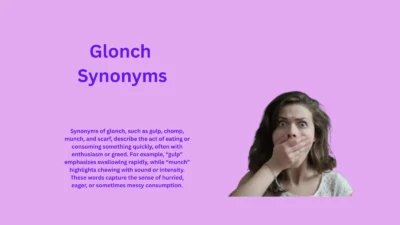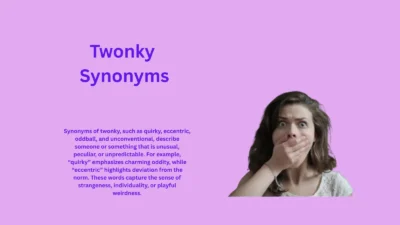Plin synonyms, such as lazy, unmotivated, sluggish, and idle, describe someone lacking energy, effort, or motivation. For example, lazy emphasizes unwillingness to act, while sluggish highlights slow or lethargic behavior. These words capture the idea of unproductiveness, passivity, or lack of enthusiasm.
If you’re writing about youth culture, lifestyle, gaming, or casual conversations, knowing plin synonyms helps you clearly describe inactivity or low effort.
These synonyms communicate lack of energy, drive, or productivity in both casual and social contexts.
What Does Plin Mean?
A plin refers to someone feeling lazy, unmotivated, or lacking energy. It can also describe behavior that is idle, sluggish, or unproductive.
Key aspects of plin
- Low energy: Lacks motivation or drive.
- Idle behavior: Avoids work or effort.
- Casual slang: Often used among friends, online chats, or social media.
Think of a plin as someone chill to the point of laziness or inactivity, often humorously or casually referenced.
Synonyms for Plin (With Meanings, Usage & Examples)
1. Lazy
Meaning: Avoids work or effort.
When to Use: Casual, social, or online conversations.
Example: “I felt so lazy today, couldn’t even get out of bed.”
2. Sluggish
Meaning: Slow, lacking energy or alertness.
When to Use: Descriptive, casual writing.
Example: “He was sluggish after the long night.”
3. Idle
Meaning: Doing nothing, inactive.
When to Use: Casual or humorous contexts.
Example: “Spent the day just idle at home.”
4. Unmotivated
Meaning: Lacking desire or incentive to act.
When to Use: Lifestyle, casual discussions.
Example: “Feeling unmotivated to do homework.”
5. Bored
Meaning: Lack of interest or engagement.
When to Use: Social media, casual chats.
Example: “So bored, scrolling TikTok for hours.”
6. Lethargic
Meaning: Sluggish, lacking physical or mental energy.
When to Use: Descriptive or casual writing.
Example: “A lethargic afternoon nap didn’t help much.”
7. Sleepy
Meaning: Tired, drowsy, low energy.
When to Use: Casual, everyday conversation.
Example: “Feeling sleepy, need coffee.”
8. Relaxed
Meaning: Calm, not active, sometimes overly chill.
When to Use: Casual, humorous.
Example: “Just relaxed all day without stress.”
9. Inactive
Meaning: Not engaging in activity.
When to Use: Casual, descriptive.
Example: “The whole team was inactive during practice.”
10. Comatose
Meaning: Extremely tired or inactive.
When to Use: Hyperbolic, humorous expression.
Example: “I was comatose on the couch all evening.”
11. Slow
Meaning: Moving or acting with little energy.
When to Use: Casual or playful contexts.
Example: “You’re so slow getting ready!”
12. Tired
Meaning: Lacking energy due to fatigue.
When to Use: Everyday, casual conversation.
Example: “Feeling tired, won’t go out today.”
13. Comfy
Meaning: Relaxed, cozy, avoids activity.
When to Use: Casual, social media.
Example: “Just comfy in bed with snacks.”
14. Unproductive
Meaning: Not accomplishing tasks.
When to Use: Lifestyle writing, casual critique.
Example: “Spent the day unproductive, just scrolling feeds.”
15. Resting
Meaning: Taking a break, inactive.
When to Use: Casual, humorous context.
Example: “Just resting, not feeling like moving today.”
16. Slothful
Meaning: Habitually lazy.
When to Use: Humorous or descriptive writing.
Example: “He’s slothful, sleeps all weekend.”
17. Couch Potato
Meaning: Person who sits around doing nothing.
When to Use: Casual, humorous.
Example: “Total couch potato after school.”
18. Dragging
Meaning: Moving or acting slowly, lacking energy.
When to Use: Casual, descriptive.
Example: “I was dragging all day after the workout.”
19. Loafing
Meaning: Idle, lounging around.
When to Use: Informal, playful.
Example: “Spent the afternoon loafing on the sofa.”
20. Dozing
Meaning: Lightly sleeping, low energy.
When to Use: Casual conversation or social media.
Example: “Caught him dozing in class.”
21. Hibernating
Meaning: Staying inactive for long periods.
When to Use: Playful, social media.
Example: “Winter break was all about hibernating.”
22. Restless
Meaning: Low motivation despite energy, avoiding effort.
When to Use: Casual or humorous.
Example: “Feeling restless, but too lazy to start anything.”
23. Fatigued
Meaning: Physically or mentally exhausted.
When to Use: Descriptive, casual or serious.
Example: “Completely fatigued after the workout.”
24. Spaced-Out
Meaning: Mentally absent, unfocused.
When to Use: Informal, playful.
Example: “I was spaced-out during the lecture.”
25. Lazybones
Meaning: Informal term for lazy person.
When to Use: Playful, humorous contexts.
Example: “You’re a lazybones, come help me!”
26. Loitering
Meaning: Hanging around without purpose.
When to Use: Casual or humorous.
Example: “Spent the afternoon loitering outside the mall.”
27. Slack
Meaning: Avoiding work or effort.
When to Use: Casual, slang, work contexts.
Example: “Stop slacking, help with the chores.”
28. Laid-Back
Meaning: Relaxed, easygoing, sometimes unproductive.
When to Use: Casual, social media.
Example: “She’s laid-back, never stresses about deadlines.”
29. Idle-Minded
Meaning: Lacking productive thought or focus.
When to Use: Casual writing or playful critique.
Example: “Spent the morning idle-minded, thinking about nothing.”
30. Plin
Meaning: Slang for lazy, unmotivated, or inactive.
When to Use: Casual chats, online slang, lifestyle content.
Example: “I was feeling plin all day, didn’t move a muscle.”
How to Choose the Right Synonym for Plin
The right synonym depends on context, tone, and audience:
| Context | Best Choices |
|---|---|
| Casual / Social Media | Plin, lazy, comfy, laid-back, loafing |
| Humorous / Playful | Couch potato, lazybones, slothful, dragging |
| Descriptive / Lifestyle | Sluggish, lethargic, unmotivated, unproductive |
| Gaming / Study / Productivity | Idle, spaced-out, slack, fatigued |
💡 Tip: Use plin and lazy for casual fun, while sluggish or unmotivated works better for lifestyle or productivity contexts.
Conclusion
The synonyms of plin allow writers to describe laziness, low energy, or inactivity across casual, social, and lifestyle contexts. Words like lazy, sluggish, and unmotivated make the concept of inactivity clear, while couch potato, loafing, and slothful add playful or humorous nuance.
Choosing the right synonym ensures your writing is relatable, precise, and engaging, whether describing someone’s mood, lifestyle habits, or casual behavior.



